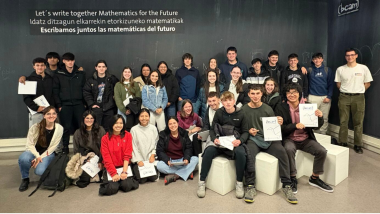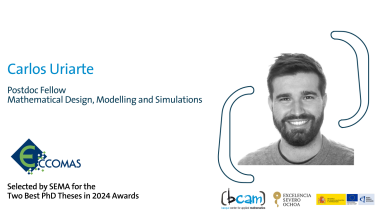The scientists who inspired us (V): Sofya Kovalevskaya
Sofya Kovalévskaya (1850-1891) was a Russian Mathematician. She was born in Moscow in a noble family that frequented intellectual environments. Her uncle told her about the squaring the circle, the notion of asymptote and critics of infinity. These conversations with her uncle awoke her passion for mathematics.
At age 13, her father discovered her qualities for algebra and decided to move the entire family to Saint Petersburg so Sofya could access university. However, at the time it was prohibited for women to get a university education. Years later, in 1869, she moved to Heidelberg with her husband. There, she couldn’t enrol in university either, but she achieved permission to attend classes as a listener. One year later Sofya sent her work to the famous mathematician Weierstrass. After reading it, he decided to teach her in Berlin.
In 1874, Sofya presented three papers as her doctoral thesis. With the support of Weierstrass, this earned her a doctorate in mathematics summa cum laude without the usual oral exams. However, she did not become a professor because of her gender. After that, she returned to Russia and left mathematics for a while.
In 1880, a student of Weierstrass attended a conference about abelian integrals that was given by Sofya and persuaded her to resume her work in maths.
In 1883, after her husband died, she became a professor at University of Stockholm. Later on, she won the Prix Bordin of the Paris Academy of Science, for her work Mémoire sur un cas particulier du problème de la rotation d'un corps pesant autour d'un point fixe où l'intégration s'effectue à l'aide de fonctions ultraelliptiques du temps.
Sofya’s contribution to mathematics is evident. She fought for her dream despite the obstacles she found for being a woman at that time and place. She had a privileged mind for mathematics from a very young age and she never stopped studying and showing that she was a brilliant mathematician.
My enthusiasm for science made me interested in the work of many scientists. I was at school when I discovered Sofya Kovaléskaya. Her work and her exciting life caught my attention and increased my passion for mathematics. I also found admirable that, regardless of her gender and the obstacles she had to face, she fought for what she wanted and she ended up getting it.
- Sources: Wikipedia.org, Enciclopedia Britannica
- Picture sources: Portrait of Sofya Kovalévskaya [Public domain]
Related news
About the center
About the center




